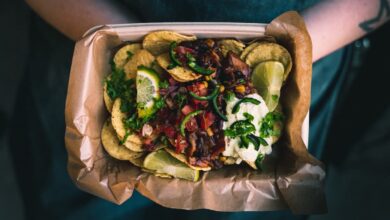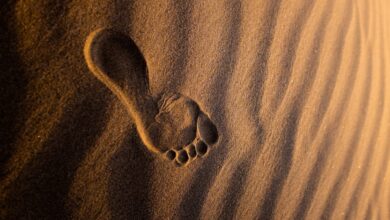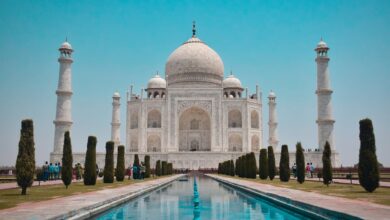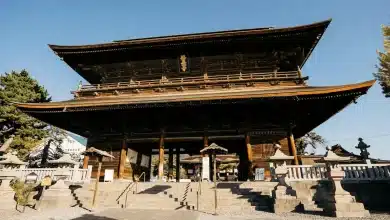Dennis McClung the Preppers
The Suburban Visionary who Transformed Crisis into Community
A man lives in a quiet suburb, Mesa, Arizona, just east of the busy city of Phoenix. His backyard is nothing like his neighbours’ perfectly manicured lawns. Dennis McClung’s backyard is not like the manicured lawns of his neighbours. It’s full of garden gnomes and trampolines.
Dennis is a prepper. The term conjures up images of doomsday scenarios and survivalist rhetoric. McClung is not the stereotypical recluse who hides in a dark corner and stockpiles canned beans. He’s the opposite. Dennis is a man of many talents, including a bright disposition, an engineering mind, a passion for family, and a strong sense of community. He represents a new kind of preparedness, one that is rooted in Sustainability, Education, as well as Environmental Foresight.
Dennis’s vision of prepping revolves around a concern once dismissed as a fringe issue, but now is taken seriously by NASA, scientists, and governments: a Coronal Mass Ejection (CME). This is a violent solar phenomenon capable of disrupting Earth’s magnetic field and wiping out the modern electrical infrastructure.
Dennis calmly says, “I’m planning for a coronal ejection which would knock civilisation to the Stone Age.” He was talking about weekend plans. Behind the dramatic scenario, however, is a methodical and thoughtful man who does not just prepare for worst-case scenarios; he also builds towards the better.

Suburban Roots and Unconventional Growth: Dennis McClung, the Preppers
Dennis McClung did not always think in this way. He began his adulthood like many Americans: with a stable job, in a quiet neighbourhood, raising a family. At first glance, his modest one-story house with a pool and garage is similar to others in the area.
Over time, however, something changed. Dennis was influenced by the global instability, economic volatility and environmental degradation. He also felt that modern civilisation was vulnerable.
He saw an opportunity where others saw a luxury. He converted his pool into an Aquaponics System that could sustain hundreds of Tilapia Fish, and a Vegetable-Growing Ecosystem. The deep end of the pool, which once was filled with splashing children, is now a hive of nutrient-rich, solar-powered pumps and rows of leafy, green plants growing in harmony with aquatic life.
Dennis was not just preparing. Dennis was not just preparing.
A Desert Laboratory of Sustainability
Dennis, who lives in Arizona’s Sonoran Desert, is very aware of the unique environmental challenges that the region faces. McClung has turned the state’s relentless heat, arid soil and rising temperatures into an advantage.
He implemented rainwater collection systems and solar panels. Composting techniques were also used. His backyard was transformed into a living lab for closed-loop sustainability, an interconnected system in which every output feeds another.
Eight chickens produce eggs and control pests. Two pygmy goats are used to control weeds and produce organic milk. The aquaponics system is at the heart of the whole thing, as a symbol for transformation and adaptability. McClung’s system does more than conserve resources. It also generates them.
It’s not prepping out of fear. This is a proactive embrace of permaculture thinking and resilience.
The McClungs – A family portrait in preparedness
The story of Dennis McClung would be incomplete without the inclusion of his wife, two children and the rest of the McClung Family. They are all equally involved in this unconventional journey. Together, they represent both traditional suburbania and off-grid innovations.
They look just like any other family. They go to school, they play games, they help with chores and spend time together. Their daily routines include feeding livestock, testing the pH level in fish tanks and adjusting the solar panel angle.
In their home, a version of the Mayan Calendar was used to count down towards what many believed was the end of the world on December 21, 2012. Dennis viewed the day as a symbol, a call to action for humanity to reconsider its relationship with technology, nature and long-term survival.
They don’t live in fear. They live in action.
Phoenix, the Fragility of Urban Life
McClung’s suburban area is located just outside Phoenix. This city represents the triumph – and fragility – of urban life in modern times. Phoenix, one of the fastest-growing metro areas in America, is an engineering marvel, built in the desert without any natural water sources nearby.
But that growth has a price. Phoenix is heavily dependent on imported water and long supply chains. It also has a fragile electricity grid, which could be severely affected by CMEs or other disruptions such as droughts, heatwaves or cyberattacks.
Dennis is well aware of the importance of this. The McClungs are self-sufficient. While their neighbours rely on weekly trips to the grocery store and central utilities, they produce and store a large portion of food. They also have tools and knowledge that allow them to live independently. Their suburban plot is used as a case study in Climate adaptation, Food sovereignty, and Community resilience.
A Story from the Backyard to Broadcasting: A Story Told on Screen
Dennis’s unique prepping approach caught the attention producers of National Geographic’s “Doomsday Preppers. This series explored the lives and preparations of ordinary people for extraordinary scenarios.
The McClungs were not the most extreme or remote preppers featured on the show. They stood out because they were relatable. One producer said:
“The McClung Family is a microcosm for the entire show.” The McClung family lived in a suburb near Phoenix. The family was typical according to actuarial standards – two children, a dog and a neat house. But they were anything but typical with their 1000 tilapia in the deepest part of their pool, their eight chickens and two pygmy goats in their yard, as well as a Maya-style calendar video on their TV.
It didn’t make sensational headlines. It celebrated creativity, devotion, and love. The McClung kids came across as intelligent, kind and engaged. The animals looked adorable. Dennis’s calm, measured and sincere explanations invited viewers to think about how they could build resilience in themselves.
The producer summarised it with affection:
I left the McClungs completely impressed by their ingenuity, dedication and charmed their children. I wanted a pygmy goat for my apartment.
A Revolution, Not a Reaction
Dennis doesn’t think that prepping just means being prepared for disasters. It’s about reimagining what modern life would look like if it were decentralised and community-driven. Ses works are at the intersection of many global movements.
- Permaculture Design aims to replicate natural ecosystems within human-made environments.
- Urban Homesteading is a trend that has grown in recent years, whereby city dwellers are turning their homes into small farms.
- Climate Resilience promotes systems that can adapt and withstand environmental stressors.
- Food Independence is crucial in an increasingly fragile world.
Dennis is a scientist, a builder and a philosopher. He asks about energy dependency and consumer cultures. He offers solutions, not out of fear, but with Solar Panels and Greenhouses.
Lessons learned from the McClungs: preparedness is empowerment
What can we learn about Dennis McClung’s suburban sanctuary?
First of all, preparedness does not have to be paranoid. It can be creative, empowering and joyous. It can include family, pets, science experiments, and gardens, not only bunkers and bullets.
The second is that geography matters. Arizonans have to think differently about energy, water and heat. But these lessons can be applied anywhere. Dennis’s desert project can be a model for similar projects in other cities, mountain towns, coastal communities, and rural areas around the globe.
Third, changes begin at home. You can start by changing your backyard, balcony or kitchen.

A New Type of Normal
Since the 2012 countdown, it has been over a decade. The world did not end, but it changed. Global conversations now include wildfires, pandemics and blackouts. Dennis McClung is no longer eccentric in this context. He’s a Visionary.
The solar-powered batteries and goat-mowed lawn are among the many things that he has done.
The lawn offers a glimpse into a world where self-reliance, community resilience and environmental harmony will not be fringe ideas, but rather necessary adaptations.
The McClungs live in an ordinary house on a normal street. In their backyard, under the Arizona sun, they are quietly rewriting modern living rules one tilapia and one tomato at a time.




